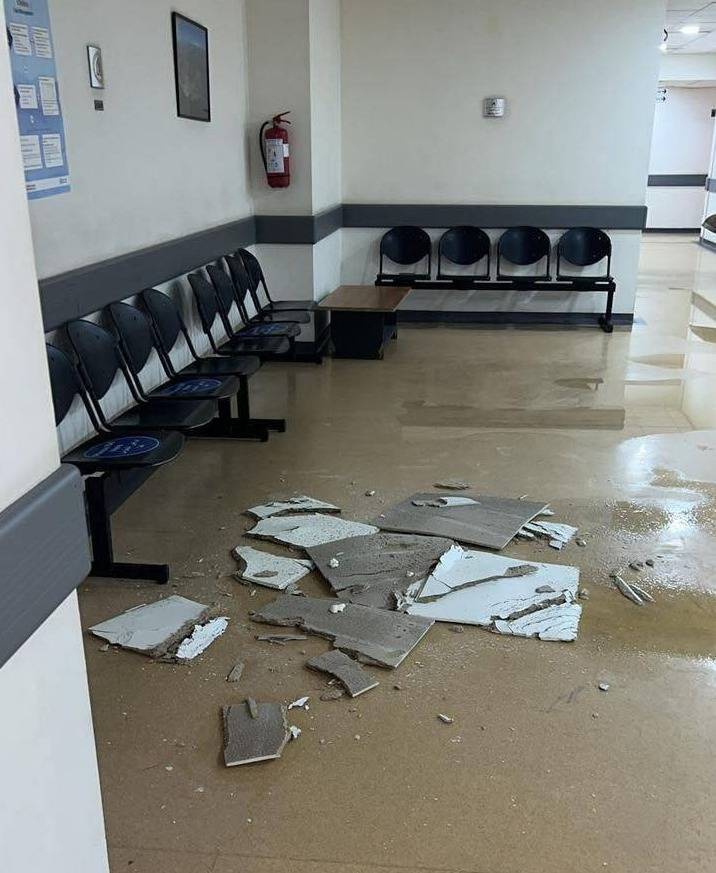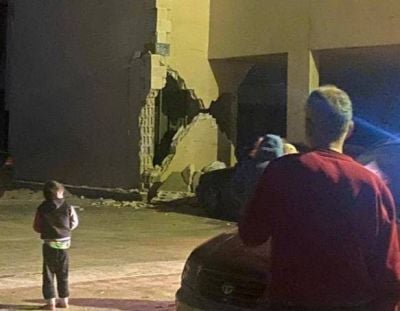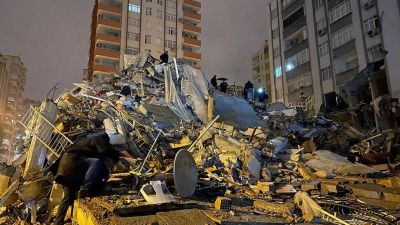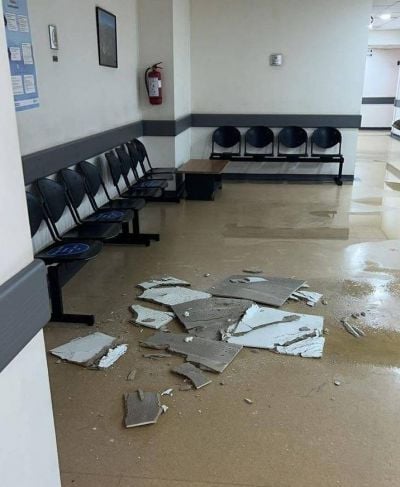
Earthquake damage at the Rafik Hariri Government Hospital on Feb. 6, 2023. (Credit: Photo from social media networks)
BEIRUT —The Lebanese Civil Defense on Monday morning issued a series of recommendations to be followed to protect oneself from risk in the event of an earthquake after a strong tremor, measuring 4.9 on the Richter scale, was felt in Lebanon on Sunday night, following a deadly earthquake in Turkey. The guidelines also detail measures to be taken in advance of any possible earthquake. Lebanon has felt several aftershocks since the initial quake.
Before the earthquake
- Secure furniture and objects that may fall
- Repair cracks in walls if possible
- Identify safe places inside the house (under solid tables, near a wall, away from windows or other objects that could break)
- Identify safe locations outside (away from buildings, trees, and power and telephone poles)
- Head to areas away from the coast because of the potential tsunami hazard
- Develop a family emergency plan in advance: set up a meeting place if family members are not together during the earthquake, put an emergency kit in a specific and accessible location
During the earthquake
Indoors
- Stay indoors
- Take shelter under a sturdy table, under a door frame or in a corner
- Stay away from windows, balconies, shelves, lamps or any other object that may fall
- Crouch down and cover your head and face with your hands
- Turn off power sources
- Avoid using the elevator
Outside
- Move away from buildings to a distance at least equivalent to the height of the building and avoid taking shelter under trees, electrical pylons or advertising signs
In a public place
- Avoid going to the exit door and go to the emergency exit instead
- Move away from any object that could fall
In a vehicle
- Stay calm and avoid driving suddenly
- Park on the right side of the road, away from buildings, walls and electrical installations to facilitate the passage of emergency vehicles
- Avoid crossing bridges and taking refuge under them
- Avoid taking refuge in tunnels
In elevators
- Stop at the nearest floor and take the emergency stairs
After the earthquake
In case of injury
- Stay calm and avoid panic attacks
- Try to get help by any means available
If the person is not injured
- Help family members and give first aid, if you are trained to deliver it; if you are not trained, wait for someone who is
- Extinguish any small fires that may have started
- Turn off all sources of energy
- Evacuate injured persons if their lives are in danger
- Avoid touching electrical cables
- Avoid using landline and cell phones except in case of emergency, especially in case of a gas leak and to avoid overloading the network
- Listen to the radio and follow the instructions of experts
- Leave the house before any aftershocks occur


